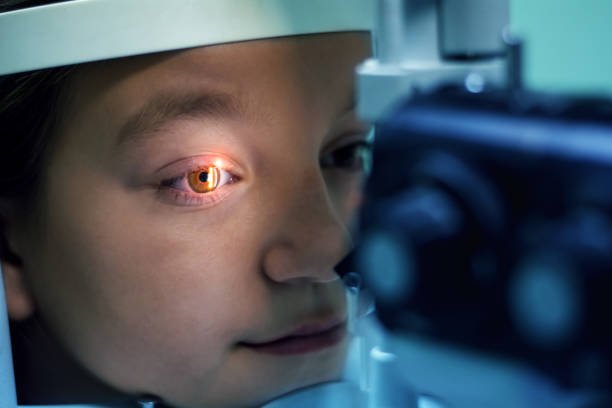By Sujata Muguda, Shreyas WebMedia Solutions
20/4/2024: Vision is a precious gift, allowing us to experience the world in vibrant detail. While eyesight naturally develops in childhood, there are steps we can take throughout life to optimize this vital sense. This guide explores how to nurture a healthy vision from those first curious glances to becoming a well-rounded adult.
The Early Years: Building a Strong Foundation (0-6 years)
- Regular Eye Exams: Infants and toddlers should have eye exams to detect potential issues like amblyopia (lazy eye) or strabismus (crossed eyes) early on. Early intervention is crucial for proper development.
- Stimulating Activities: Provide visually stimulating toys and environments with contrasting colors and textures. Engage in interactive games like peek-a-boo and follow-the-light to encourage focusing and tracking skills.
- Nutrition: A balanced diet rich in fruits, vegetables, and omega-3 fatty acids provides essential nutrients for healthy eye development.
School Age: Maintaining Focus and Comfort (7-18 years)
- Limiting Screen Time: Excessive screen time can strain eyes and contribute to nearsightedness. Encourage breaks every 20 minutes, focusing on a distant object for 20 seconds (the 20-20-20 rule).
- Proper Lighting: Ensure adequate lighting for reading and homework. Avoid glare from overhead lights or screens positioned too close.
- Healthy Habits: Encourage good posture and proper reading distance (around an arm’s length). Regular exercise promotes overall health, including eye health.
- Eye Protection: Sunglasses that block UVA and UVB rays are essential for protecting young eyes from sun damage. Choose shatterproof lenses for active children.
Teenage Years and Beyond Maintaining Sharpness (19 years onwards)
- Comprehensive Eye Exams: Regular eye exams become even more important as we age. Early detection of conditions like myopia (nearsightedness) or hyperopia (farsightedness) allows for corrective lenses or management strategies.
- Diet and Supplements: Continue a balanced diet rich in antioxidants like lutein and zeaxanthin found in leafy greens and colorful fruits. Discuss the possibility of eye health supplements with a doctor or ophthalmologist.
- Digital Eye Strain: As screen use remains prevalent, prioritize breaks and employ eye-friendly settings on devices. Nighttime filters on phones and computers can reduce blue light exposure, aiding sleep and reducing eye strain.
- Healthy Habits Revisited: Don’t forget the importance of sleep for eye health. Aim for 7-8 hours of quality sleep each night. Smoking cessation is crucial as smoking increases the risk of age-related macular degeneration (AMD).
Remember:
- Early Detection is Key: Addressing vision problems early can prevent complications later.
- Listen to Your Body: Regular eye strain, headaches, or difficulty seeing are signs to schedule an eye exam.
- Protective Eyewear: Use protective eyewear during sports or activities with a high risk of eye injury.
- A Team Effort: If you have concerns about your child’s vision, discuss them with your pediatrician and seek an eye exam.
You can cultivate a sound vision for the duration of your life by adhering to these suggestions. Your eyes are windows to the world, therefore treat them with the respect they need so they can appreciate all that beauty life has to offer.

Leave a Reply